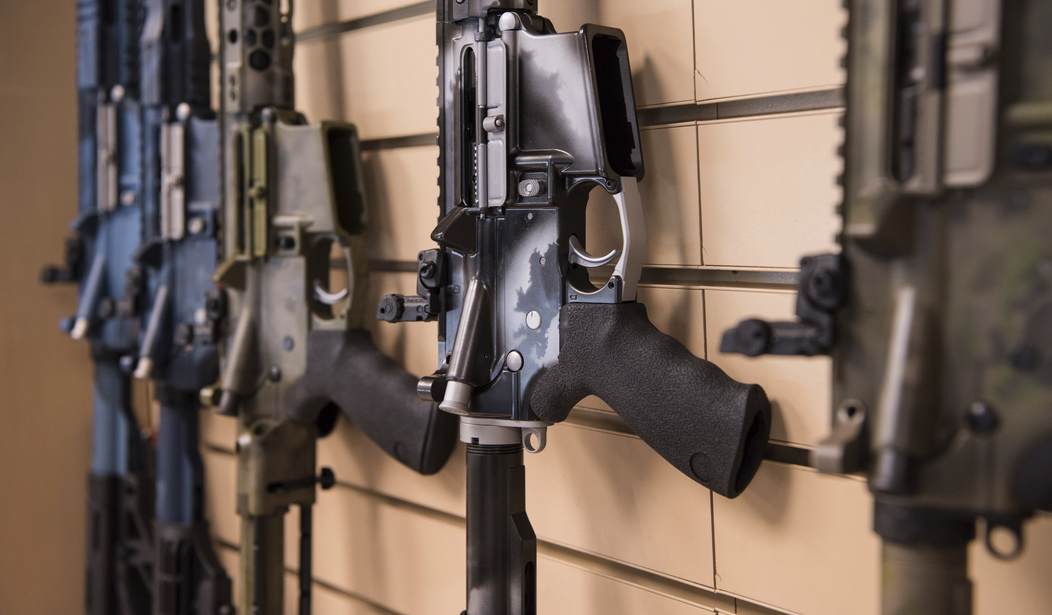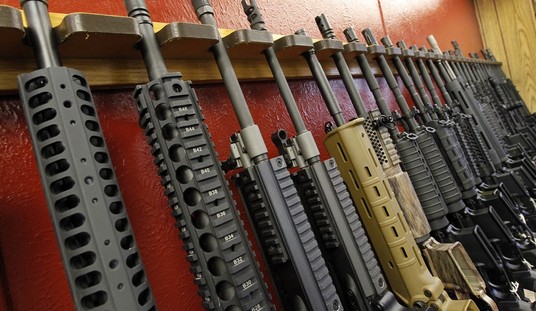Hackers have released reams of information gathered by the Mexican military on suspected straw purchases and firearms recovered in Mexico, and the data reveals just how damaging the ATF's botched gunwalking operation known as Fast and Furious really was. We already know that the ATF allowed more than 1,000 firearms to cross the U.S.-Mexico border, but the leak reveals that some of the most prolific suspected straw buyers in recent years were operating under the watchful eye of the agency.
As part of the leak, emails relaying U.S. government data between Mexican military leaders and PowerPoint presentations by Mexico’s attorney general show which American straw buyers were tied to the most weapons as of 2022.
Among them is Texan Craig Adlong. He pleaded guilty in 2020 for lying on firearm transaction forms, saying the guns were for his personal use. He purchased 95 semi-automatic rifles at Guns Unlimited in Katy, Texas, making seven visits over two months.
Sixty-six of those firearms were recovered in Mexico, according to the leak.
Reached by phone, Adlong told USA TODAY he was surprised he remained on Mexican officials' radar after serving a six-month prison sentence. He made a mistake, he said, that he has put behind him.
Asked if he worries about acts of violence being committed with guns tied to his name, he said, “Absolutely. You’d have to be an animal not to.”
Of the other six top purchasers, half are linked to the Bureau of Alcohol, Tobacco, Firearms and Explosives scandal known as Fast and Furious.
Retired ATF assistant deputy director Pete Forcelli, who recently wrote a powerful memoir about his time in the Phoenix ATF office and helping to blow the whistle on Operation Fast and Furious, told USA Today's Nick Penzenstadler that the leaked data appalls him.
“This is a stain we all wear. We had a duty to stop the flow of guns and we’re failing.”
Forcelli said it’s no surprise that guns purchased more than a decade ago in Tucson, Arizona, continue to show up in gun battles in Michoacán, Mexico: “They’re not like apples or loaves of bread; guns will be around until they get recovered at a crime scene used by the cartels.”
Mexican officials like Alejandro Celorio, who's deeply involved in the Mexican government's $10 billion lawsuit against multiple gun makers, claim the data buttresses their case that the firearms industry is knowingly arming cartels, but if anything it shows that Mexico should be suing the ATF and DOJ instead of companies like Smith & Wesson.
The hacked material identifies a series of straw purchasers who caught the attention of Mexican officials as behind a high volume of traces.
The top purchaser identified by Mexico in the documents is Uriel Patiño, who served a 70-month prison sentence after taking a plea deal in 2014. Patiño was notorious for being the top straw purchaser in the Fast and Furious debacle, purchasing 700 guns under ATF’s watch. CBS reported that two AK-style Romanian-made, U.S.-sold WASR-10 rifles purchased by Patiño ended up at a crime scene in Culiacán in 2013.
Two other purchasers, Sean Christopher Steward and Carlos Armando Celaya – both prosecuted in the Fast and Furious operation – also appear in the data.
Mexican state police in Tamaulipas cracked open four refrigerators imported from the U.S. on June 17, 2020. Inside, they discovered 54 firearms. American prosecutors said 33 of those were traced back to Michael Mummert of Texas, who was sentenced to three years in prison.
Later today my colleague Tom Knighton will have a deep dive into the types of firearms that are being recovered south of the border, which also cuts against Mexico's claim that the firearms industry is knowingly aiding and abetting the drug cartels. Are there some bad actors operating at gun stores? Yep, and when they break the law they get prosecuted. But as Forcelli has told me, the vast majority of FFLs serve as additional eyes and ears for the ATF, alerting agents when suspected straw buyers come into their stores and helping to prosecute offenders. At least, that was fairly common before Operation Fast and Furious, when the ATF tried to pin some of the blame for the gunwalking scandal on the gun stores that had been instructed to let suspicious sales proceed.
The impact of Operation Fast and Furious is still being felt across Mexico, but none of the ATF officials who came up with the scheme have ever faced real punishment or consequences for their actions. Mexico and the gun control groups that are aiding its lawsuit aren't interested in sanctioning the agency or any of its employees. Their goal is to destroy the U.S. firearms industry, not hold the ATF responsible for its actions, but the data clearly shows just how much damage Operation Fast and Furious has done.. and how helpful it was to the drug cartels in Mexico.









Join the conversation as a VIP Member